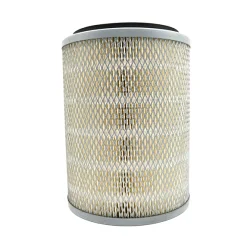What type of air purifier is good for asthma?
2023-10-21
Air purifiers can be beneficial for individuals with asthma by helping to remove airborne particles and allergens that can trigger asthma symptoms. When selecting an air purifier for asthma, consider the following factors to ensure it is effective:
1. HEPA Filter: Look for an air purifier with a High-Efficiency Particulate Air (HEPA) filter. HEPA filters are highly effective at capturing airborne particles like dust, pollen, pet dander, mold spores, and allergens. Make sure the air purifier has a true HEPA filter and not a HEPA-type filter, which is less efficient.
2. Size and Coverage: Choose an air purifier that is appropriately sized for the room where it will be used. Ensure it has the capacity to purify the air in the room effectively. Many air purifiers specify the square footage they can cover in their product descriptions.
3. CADR Rating: Check the Clean Air Delivery Rate (CADR) rating of the air purifier. The CADR rating provides an indication of the purifier's efficiency in removing particles (dust, pollen, smoke) from the air. Higher CADR ratings indicate better performance.
4. Filter Replacement: Consider the cost and availability of replacement filters. Most air purifiers require periodic filter changes, so make sure you can easily find and afford replacement filters. Some purifiers have indicator lights to remind you when it's time to change the filter.
5. Noise Level: Pay attention to the noise level of the air purifier. Quieter models are often preferred, especially if the purifier will be used in bedrooms or other quiet areas.
6. Features: Look for features like multiple fan speed settings, a timer, and a filter replacement indicator. These features can enhance the usability and effectiveness of the air purifier.
7. Air Quality Sensor: Some air purifiers come with built-in air quality sensors that can automatically adjust the fan speed based on the air quality in the room.
8. Certifications: Check if the air purifier has certifications or endorsements from reputable organizations such as the Association of Home Appliance Manufacturers (AHAM) or the Asthma and Allergy Foundation of America (AAFA).
9. Type of Filtration: In addition to HEPA filters, consider whether the air purifier uses additional filtration technologies, such as activated carbon filters for odor and chemical removal, or UV-C or photocatalytic filters to address bacteria and viruses.
10. Price: While cost is a factor, it's essential to balance your budget with the air purifier's effectiveness and the filter replacement costs over time.
11. Maintenance: Consider the ease of maintenance, including how easy it is to change filters and clean the unit.
Remember that while air purifiers can help reduce airborne allergens and asthma triggers, they are not a replacement for medical treatment or other asthma management strategies. Consult with a healthcare professional for personalized guidance on managing asthma. Additionally, it's advisable to choose an air purifier that meets your specific needs and the conditions in your home, which may vary depending on factors like the presence of pets, smoke, or seasonal allergies.



